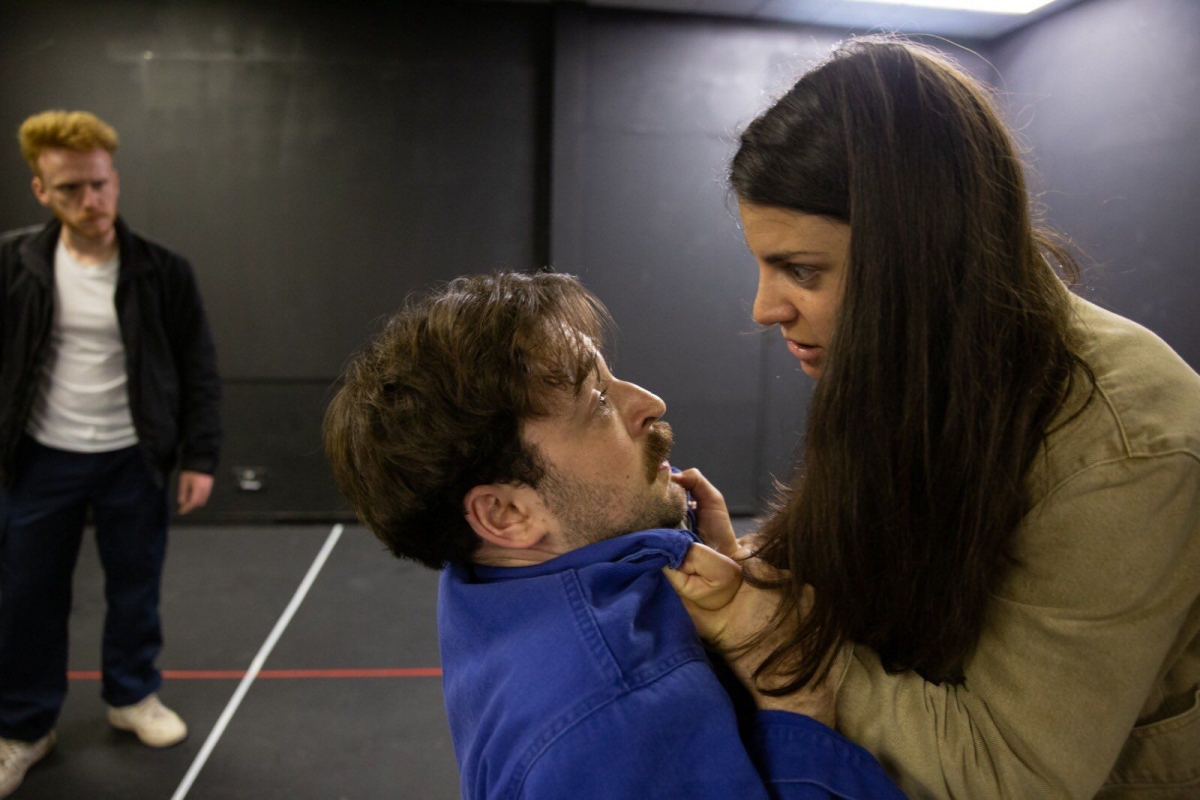An entirely black and bare stage replicates the interior of a container where three migrants are crossing an ocean. The only props are the things they have with them – one carries only a knife, another a rucksack, another a wheelie trolley. We find they are leaving the ruined continent of Europe, no longer ‘a rich place without wars,’ but there’s not much detail on what happened there.
Instead the Italian playwright Emanuele Aldrovandi’s script concentrates on tensions between the unnamed characters – a criminal played by Marco Young; a young north African woman played by Yasmine Haller and a wimpy writer played by Will Bishop.
We have only a general idea of where they came from or what they did, the past is what they are getting away from. But what are they going towards? Each character seems to know what destination they paid for, but each location is different: Japan, Australia, Venezuela. The script edges towards a metaphysical question – where are any of us going? – but pulls back into knockabout antics about the criminal trying to steal money from the wimpy writer.
Presiding over these three is the burly figure of the trafficker, whose fondest ambition is to make enough money to buy a second container. Played by Felix Garcia Guyer, he is the closest thing to a comic turn this play has. He gives a lecture on the history of the container, on different types of shipwreck and recites a recipe. I didn’t understand the occasional use of a microphone which made him sound like a bingo-caller.
The plot feels somewhat contrived. The inevitable capsizing of the boat leads to a second half where the mere act of survival becomes more basic and, in this production, more grisly. Without giving away too much of the plot, conflicts escalate and fights break out. The argument about money becomes pointless. Left afloat on the container with no food or water, their thoughts turn to cannibalism, drinking urine and blood to stay alive.
It may be there is something lost in translation, and in the original Italian this all sounded normal enough to be surreal. As performed, it is not, as the programme notes say, ‘darkly hilarious’, more like irritatingly violent, with lines for laughs which don’t seem to fit. The cast do their best but they have been directed at a tempo which is too shouty from the start with change in direction signalled by shouting louder.

